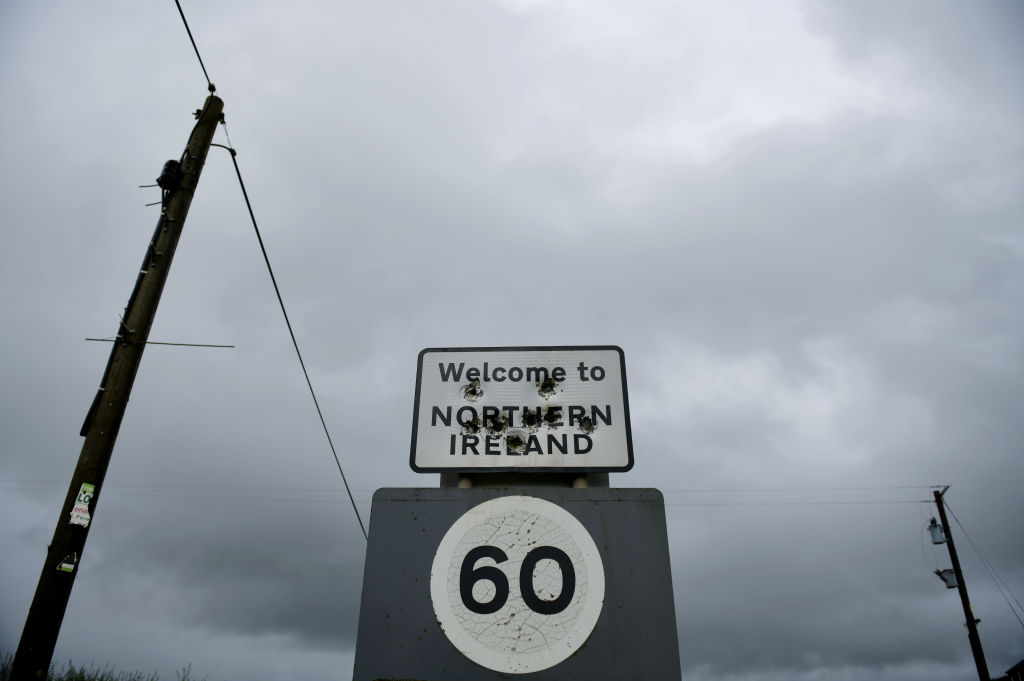
The beat
Police clash with protesters in Catalonia
The Catalan independence struggle erupted into violence again this week as riot police clashed with pro-independence protesters and arrested 51 people. Protesters took to the streets in Barcelona after the Spanish supreme court sentenced nine Catalan separatist leaders to jail for their roles in the 2017 independence referendum. The Spanish government warned that police would take a ‘firm, proportional and united response’, that saw officers charge at protesters with batons and fire rubber bullets into crowds.
Philippine police chief resigns over drug scandal
The chief of the Philippine National Police, Oscar Albayalde, has resigned amid a drug scandal just weeks before he was due to retire. Albayalde has been accused of protecting police officers involved in ‘recycling’ confiscated narcotics and profiting from their actions when he was a provincial police chief. It’s alleged that he prevented the dismissal of police officers under his command who had been found with more than 100 kilograms of confiscated methamphetamine.
South African police march against gender-based violence
More than a thousand police officers in Pretoria marched against gender-based violence on Monday as part of the South African Police Service’s ‘men for change’ campaign. The march was organised in response to the recent surge in murders and sexual violence against women across the country. Around 3,000 women were murdered in South Africa in 2018.
Checkpoint
Vietnamese traveller deported under tightened biosecurity rules
Australian officials have deported a Vietnamese woman after finding undeclared food items in her luggage, including raw pork, eggs, quail and squid. The woman has become the first traveller to be deported under new quarantine laws that allow authorities to cancel visitors’ visas if they’re caught importing prohibited goods. The new laws are part of the government’s efforts to keep African swine fever out of the country.
Denmark restarts border checks
Denmark is set to introduce temporary border checks at its border with Sweden, which will start next month and take place at all crossings at least once a week. The new measures will include road and rail checks over the Oresund bridge as well as ferry checks at various ports. Denmark’s government has taken action in response to recent bomb attacks in Copenhagen and gang-related shootings, which police suspect are connected to Swedish citizens.
British family arrested in US
US border authorities have arrested a British family after they crossed the border from Canada. The family was driving near the border south of Vancouver when they veered into the US in what they say was an attempt to avoid hitting an animal. Customs officials, however, stated that the family was spotted ‘slowly and deliberately driving through a ditch’ between parallel roads on the US and Canadian sides. The seven family members are now being held in an immigration detention centre in Pennsylvania, after Canada refused to take them back. The UK Foreign Office says it is providing assistance in the case
CT scan
Syrian camp breakout sparks terrorism fears in Southeast Asia
A weekend breakout of about 800 detainees from the Ain Issa camp, a Kurdish camp in northeastern Syria where hundreds of Islamic State–linked prisoners are being held, has sparked fears of a resurgence of terrorism in Southeast Asia. Around 700 Indonesians and 50 Malaysians were detained in the camp. An Indonesian counterterrorism expert said the chances of the escapees returning to Indonesia was high, which would increase the overall threat to the region.
Pakistan faces blacklisting
In what would be a serious blow to Pakistan’s faltering economy, the Financial Action Task Force could blacklist Islamabad over terrorism financing and money laundering when it meets in France this week. A report released by the task force earlier this month says Pakistan has fully implemented only one of the 40 measures that it should be taking to avoid being blacklisted. Currently, only Iran and North Korea are on the list.
No-deal Brexit could be a rallying cry for terrorists in Northern Ireland
A senior police official in Northern Ireland has warned that a no-deal Brexit could open up opportunities for terrorist crimes by dissident republican groups in Northern Ireland. He said that UK police operations could become ‘sub-optimal’ if they lose access to the European arrest warrant system and criminal data-sharing. In the lead-up to 31 October, the number of officers assigned to the five border counties has risen from 200 to 300.
First responder
Typhoon Hagibis slows bullet trains
East Japan Railway said on Tuesday that full service of the Hokuriku shinkansen between Tokyo and Kanazawa won’t resume for a while due to the damage caused by Typhoon Hagibis. Severe flooding partially submerged 10 bullet trains worth roughly $440 million. Floodwater would likely ruin components stored underneath the carriages that control functions like braking, power and air-conditioning.
Predicting Ebola outbreaks
A team of researchers from the UK and US have designed a mathematical model that could help predict the next Ebola outbreak. The model captures the impacts of various environmental factors and tracks how changes in climate and human society can affect the virus’s spread. The model could help policymakers decide where to target future vaccination efforts. The study also warns that continued climate change will raise the risk of Ebola spreading further and reaching previously unaffected areas.
ANU researchers develop test for drought resilience of crops
Researchers at the Australian National University have developed a new method to help farmers identify drought-resilient wheat that can produce a high yield with less water. This type of research is important for Australian farmers in areas affected by severe drought that have seen reduced food production and farm incomes in recent years. Co–lead researcher Arun Yadav says he believes the work will be ‘instrumental for farmers to maximize food production in the face of increasingly severe drought’.

